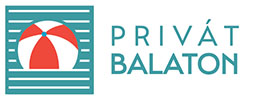Siófok
I grew up as a child in the Great Hungarian Plain in the seventies, which at the time, among others, meant two things: 1) I loved novels about distant landscapes, explorers and travels, 2) Lake Balaton seemed to be an exotic place that could only rarely be experienced, and since I could only meet it in a children’s (back then: pioneer) camp, it was an object of constant desire. Even later when I “hitchhiked a lot near Lake Balaton”. Maybe it is just a typically Hungarian exaggeration to call a wild duck pond in the capital the „Bottomless” Lake and a wooded-schrubby grove in Debrecen the “Great” Forest, but then why shouldn’t Lake Balaton really be the “Hungarian Sea”? For me it was, especially when I had the chance to get on a boat, say, the catamaran between Fonyód and Badacsony or the ferry from Tihany. From the railing I could watch the rippling waves crushing against the hull. I really felt like a sailor of distant seas from the books I read and after ten minutes I was looking at the opposite shore like seafarers at the land they had been longing to reach for weeks, where the captain’s instructions and the gulls circling around above my head made the experience even more complete. When we stopped on the southern shore, I peered the opposite shore (either Badacsony was visible, or one could only barely see it) and felt like a seaman of pre-Columbian times filled with curiosity to see what was beyond the „big water” and when I could sail there. Later as a history teacher, I read Lajos Kossuth’s lines, he wrote in Balatonfüred in 1842: “one’s heart aches when looking at this enormous water. It is as dead as only the cursed Dead Sea in Palestine can be! Twenty miles of smooth road, larger than some counties, than some principalities and encircled by the fairest scenery of our homeland, and yet not a single ship floats upon it.” István Széchenyi, who was his debating partner at the time, did much to ensure that the first steamship “floated” on it shortly afterwards, symbolising Hungary’s progress towards catching up with modernisation. This way the many childhood memories have been combined in Lake Balaton boat tours with the lessons of history and I feel confirmed that Lake Balaton is really a sea, that those who embarked on a boat were brave explorers and I can only be happy to be part of this experience.
Csaba Fazekas

Kapcsolat

Lipták Gábor Városi Könyvtár
Balatonfüred, Kossuth Lajos u. 35, 8230
Adószám: 16883347-2-19
Képviselő:
Tóth Györgyi igazgató
info@privatbalaton.hu


